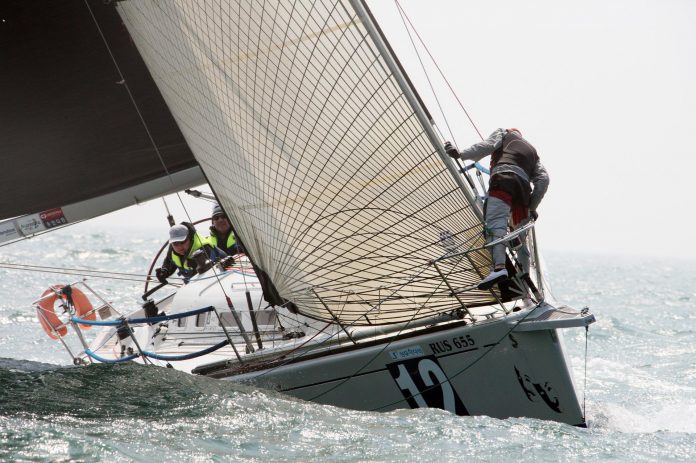

There are some attributes common to all top crews and each crew position has its own specific responsibilities and needs a particular skill set. Every team benefits from simple things like proper preparation and better fitness.
Some of the most valuable lessons we learn come through switching roles and only then can you appreciate what each crew member encounters when called upon to act.
I have listed below some of the things that will ensure that you are a valuable team member on your boat.
Physical Fitness –
Physical fitness improves mental focus, especially as the day and/or week wears on in a regatta. Out-of-shape sailors are slow to recover when things go wrong. Maintaining a reasonable level of fitness makes it easier to change your weight as required in different boats. You can do this without sacrificing your health.
Be Prepared –
Have a look at the forecast before leaving home and only bring the gear necessary for the days racing. Come with a roll of tape, a sailors knife and a few spare pieces of rope to carry out emergency repairs.
Start Racing When You Get to the Boat –
By that I mean rig the boat, prepare the necessary gear for the days racing. Get your head in the race early and don’t waste time with idle chatter not related to the days event. The advantage of this is that you will have time if something is missing or out of place to fix it rather than a last minute panic which could cost you the race.
New Crew Member –
When there is a new person or two onboard, take time to familiarise them with what you expect them to do. Tell them how the communication works on the boat and get out on the course early to practice a few manoeuvres.
Trust Your Teammates –
Trust your teammates so that you can focus on doing your job. Don’t hesitate to point out something that looks wrong, but make sure your area is locked down first. The trimmer who watches the bowman’s every move isn’t looking at his sail enough.
Adapt –
You might not always agree with the tactician or the helmsperson, but save the debate for later. Adapt to whatever call is made, and focus what you can do to make the best of the current situation.
Be Proactive –
Move your weight before the skipper asks and listen to the calls for puff and lull and slide your weight in and out accordingly.
Communication –
When operating outside your standard playbook, step up the communication. For instance, to handle a particularly nasty set of waves, a trimmer might say: “I’m easing a lot for this set of waves.”
If you need to go to leeward, or to the bow, to fix something in full-hike conditions, make sure everyone is aware before you move. Allow the driver to pick the best time for you to go.
Crews Need A Thick Skin –
Skippers anxiety level often correlates to their limited view of the course. Snapping back only makes matters worse. Focus on fixing things and doing your job. Don’t take it personally, and stay confident in your capabilities.
Observe the Competition –
If the boat isn’t going well, look for differences in nearby boats that are going well. It might be something as simple as a different angle of heel or differing mainsail twist.
Know the Race Plan –
Tactics won’t matter if people are unsure of the plan or a call comes too late. This is most critical for the bowman, because of the physical separation to the call makers and the ramifications of a breakdown on the bow. When in doubt, pass the information up the rail in a calm manner.
The bowman has to take charge if things are coming down to the wire. They ultimately have the best sense of what can and cannot be done in time, and has to be willing to say: “You need to make a call now.”
Debrief –
Regardless of where you finish, it’s useful to break down what worked and what didn’t. Frame the discussion into something specific that you can improve on.
The race you have just completed is history; the key is how you can use that experience to improve future results.

